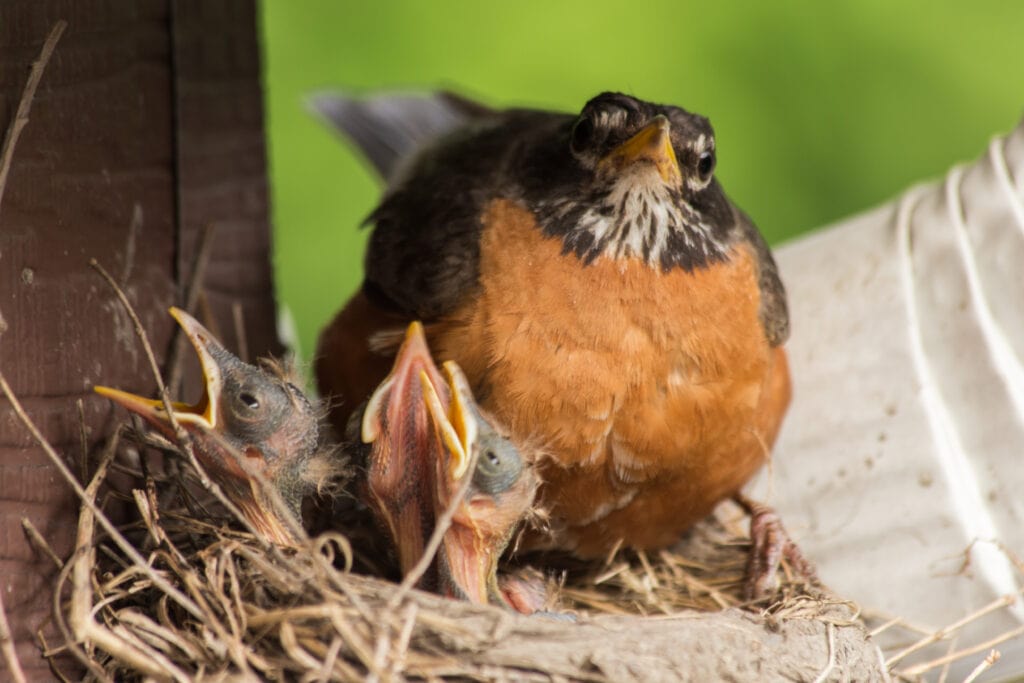Most everyone in my life knows about my enthusiasm for (or obsession with) all things birds. As such, I often get called to answer various bird-related questions. Usually, these are delightful opportunities to help a friend or family member identify a backyard visitor from a blurry photograph. Sometimes, though, I am asked to advise on stickier things. Like the rescue of an “abandoned” baby bird or the proper course of action when a cowbird egg has been spotted in a lovingly tended bluebird house.
Related Article: Bird Flu Spells Disaster for California Condor Conservation
It is frustrating to have to tell well-meaning animal lovers that their best course of action is to do nothing. In truth, this is usually the right call. As we transition from spring to summer and baby birds are taking their first perilous steps outside of their nests, more and more baby birds around the country will fall victim to kind intentions.
So, let’s discuss what to do when you find a baby bird, when it is right to rescue a baby bird, what to do with a rescued bird, and when the bird should be left alone. The answer to the first issue is rarely. Often, people notice “baby” birds on the ground during this season because being on the ground is a totally normal stage of the bird’s development. Young birds leave the nest when they are ready and begin learning to fly on the ground. Their parents are usually nearby watching, feeding, and attending to them. Some birds even nest on the ground. If a bird on the ground appears uninjured and healthy, odds are that no interference is necessary.
If a bird on the ground has all of its feathers and you are concerned about a dog or a cat nearby, or you have not seen the bird’s parents in a while, remove pets from the area. Remove the bird from roads or busy areas and place them under a nearby bush. The parents will usually return if it is safe to do so.
If you find a baby bird that is featherless, look for a nest. It is a total myth that the parents will abandon a bird that has been touched. Birds actually tend to have very poor senses of smell. Returning the bird to its nest is the best chance that you can give it. Note that removing a wild bird from its nest or hand-raising one, even if it seems to be in danger, is illegal under the Migratory Bird Treaty Act.
If you are still unsure; if the bird is injured, the parents do not return, or a nest cannot be located, contact a wildlife rehabilitator near you. Baby birds need constant care and feeding. They can aspirate or drown if given water or food by someone who is not a professional. Remove the bird to a dark shoebox lined with something soft and transport it to a rehabilitator immediately. When in doubt, a bird’s best shot is with its parents and interfering should only be done as a last resort.
Popular Article: Colorado Crane Conservation Coalition Camera Is Live

